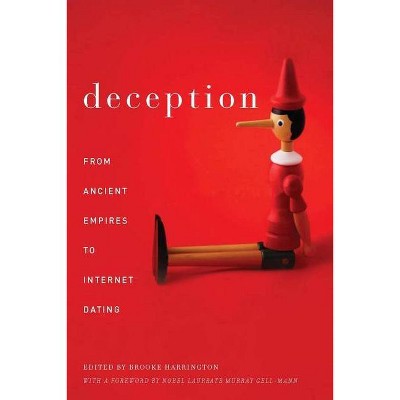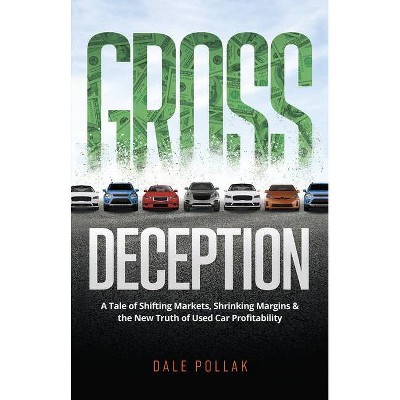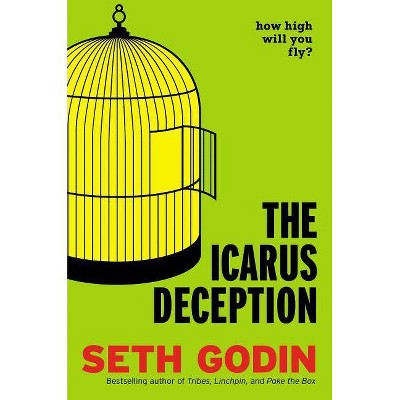Deception - by Brooke Harrington (Hardcover)

Similar Products
Products of same category from the store
AllProduct info
<p/><br></br><p><b> About the Book </b></p></br></br><i>Deception</i> offers a broadly accessible overview of state-of-the-art research on lies, trickery, cheating, and shams by leading experts in the natural and social sciences, as well as computing, the humanities, and the military.<p/><br></br><p><b> Book Synopsis </b></p></br></br><i>Deception</i> offers a broadly accessible overview of state-of-the-art research on lies, trickery, cheating, and shams by leading experts in the natural and social sciences, as well as computing, the humanities, and the military.<p/><br></br><p><b> Review Quotes </b></p></br></br><br>Brook Harrington's edited collection of essays is the product of a series of cross-disciplinary workshops held at the Santa Fe Institute in 2007, while Harrington was a Visiting Scholar. It includes essays by biologists, computer scientists, social psychologists, sociologists, political scientists, law professors, humanities professors, and poets. The mix of contributors reflects the editorial view that . . . it would be a form of 'reductionism' for the collection as a whole to offer a definition of deception. . . .--James Edwin Mahon "<i>Philosophy in Review</i>"<br><br>Don't be deceived by the deceptively simple title. These fascinating essays by biologists, psychologists, sociologists, poets, and computer scientists reveal the complexities of studying deception across historical epochs and types of interactions--from the micromechanisms of facial muscles to online communications, from photography to finance, from the false mating signals of the carnivorous firefly to the literary trickster Brer Rabbit, from deception in warfare to self-delusion. Insightful analysis, and delightful reading. --David Stark, Columbia University, author of <i>The Sense of Dissonance: Accounts of Worth in Economic Life</i><br><br>One of the most important forms of communication--deception--is one of the least studied, in part because it deliberately blurs itself to get its effect, in part because there are so many forms of deception they seem to defy coherent analysis. A useful approach to the problem, then, is with a collection of investigators, each with a different angle, each aware of the others' contributions, each looking for signs of hidden structure. The result in this book, deliciously, is an introduction to the Science of Untruth.--Stewart Brand "Global Business Network/Monitor"<br><br>This book is not only very interesting, it is one that should be read by all those who are interested in achieving a better understanding of human behavior, regardless of context.--Richard Klimoski "<i>Administrative Science Quarterly</i>"<br><br>This quirky but wonderful book has one message: lies abound. Deception is everywhere and always has been...This first-rate book belongs bedside and in any number of disciplinary seminars on deception.--<i>CHOICE</i><br><br>Unlike many edited books, this book of chapters by different authors is uniformly well written.--Richard W. Bloom "<i>PsychCRITIQUES.</i>"<br><br>Well written, with fresh insights into deceptive behaviors in diversecontexts, this timely volume is a must-read for anyone interested in thelatest cutting edge thinking about deception.--David Shulman "author of <i>From Hire to Liar: The Role of Deception inthe Workplace</i>"<br><p/><br></br><p><b> About the Author </b></p></br></br>Brooke Harrington is Research Fellow at the Max Planck Institute in Cologne, Germany. She is the author of <i>Pop Finance: Investment Clubs and Stock Market Populism</i> (2008). A graduate of Stanford and Harvard Universities, she has been a visiting scholar at the Santa Fe Institute and has been recognized for excellence in research by the National Science Foundation, Russell Sage Foundation, and the Alexander von Humboldt Foundation.
Price History
Price Archive shows prices from various stores, lets you see history and find the cheapest. There is no actual sale on the website. For all support, inquiry and suggestion messagescommunication@pricearchive.us




















